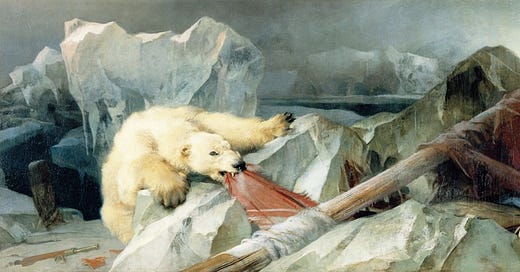There are few things in life more terrifying than accompanying your parent to a place that’s a hospital, in a vehicle that’s an ambulance. Four weeks ago, as we rushed my father to the emergency room, memories of the past and visions of the future congealed into a single sensation for which I have no language. Among other things, I was reminded of how little we must learn to expect from life.
Twenty-twenty was the year of unwelcome surprises for many, while I had basked in the privilege of social isolation.
A week into the New Year, I was forced into making a fresh start. Our maiden outing of the year was to a hospital thronging with people who had obviously also imagined their Friday night differently.
Before anything else, I’m immensely grateful that my father is back home and is recovering well. He was diagnosed with a condition that has recently been sighted in severe cases of Covid-19, except it wasn’t the virus that had caused it in his case. It’s more than just ironic that the condition may have been triggered by the very precautions we had taken to prevent contracting the virus.
The idea of the divine customarily takes shape and form during an event of distress—the most prominent feature of the hospital’s vast waiting area was its shrine.
My father was rescued from this life-threatening episode by what has been ascribed to “god’s grace”, even by clinicians.
Towards the end of last year, I had compiled a list of topics I’d like to write about. You plan to write about something that you have experienced, and then you experience something that you had never planned. And then that’s what you actually write about.
Much of my work has been an exploration of the eventfulness of the ordinary. But sometimes, it takes an event proper to jolt you into examining the makings of your everyday. Strict social isolation, I realize, could be an ailment that festers undetected.
Of course, there’s no denying that the year of social isolation has served me well. But recent events impel me to reassess my predilection for extreme measures—isolation stretched far enough into the terrain of impudence, precautions bordering on paranoia.
After months marked by stillness, I did something significant at the end of 2020. The life event had a remarkably sparse audience—neither in person nor online. This was planned thus, and the pandemic has been a faithful alibi. Over the years, I had become terrified of the ways in which an audience can alter one’s experience of an event (more on this in my piece on social media shyness).
What I have seen in the last few weeks is the type of situation that the world understands as painful—no questions asked on the validity of your emotions. Had there been no audience, this pain would have been akin to the one that resides in the deep recesses of every heart, desperately seeking an audience in the guise of the written word.
I write today not because I have changed my view of how an audience alters what you see and feel, for the good or for the bad, but it is to say that I am willing to examine the role of an audience in more ways than one.
The bulk of the New Year gapes before me in all its blankness. I propose to inscribe on it with words of love and longing.





Glad things turned out for better. This reads like a prologue for the articles to come in 2021. I am especially interested in knowing more about how we constantly put on Performance for others and sometimes for ourselves to feel better. How far the performances take us away from the true-self, the clash of non-performing and performing self.